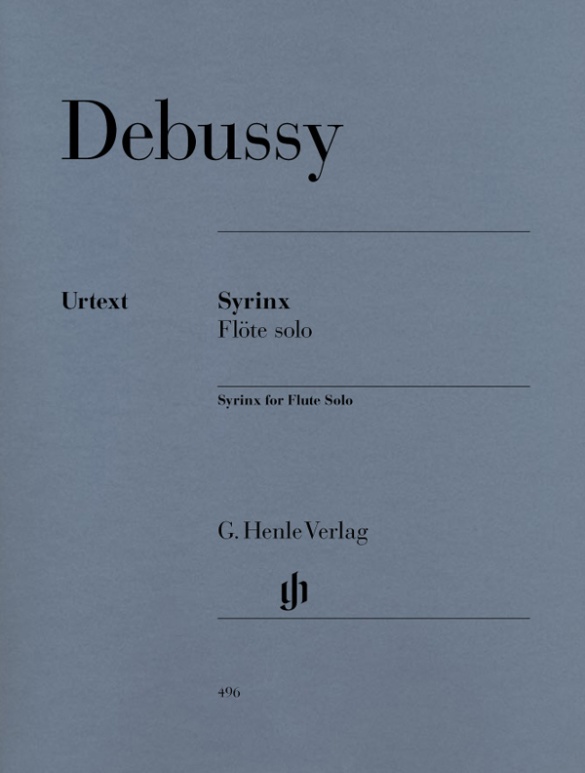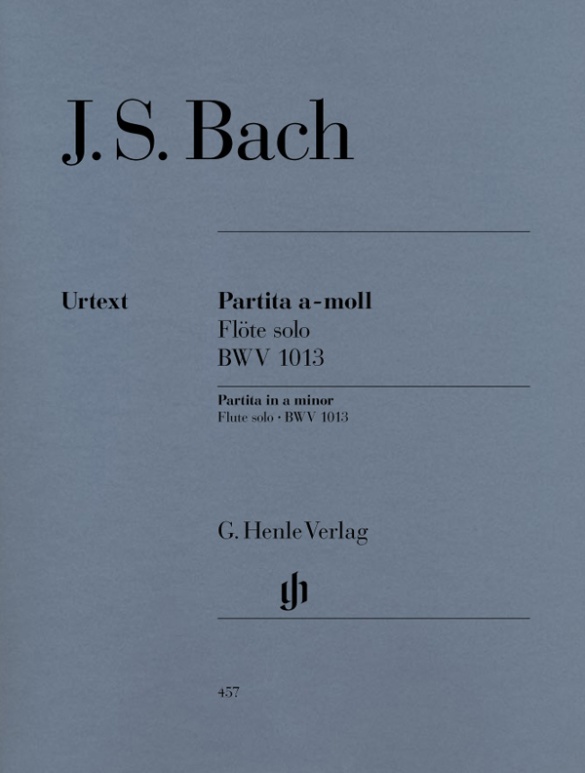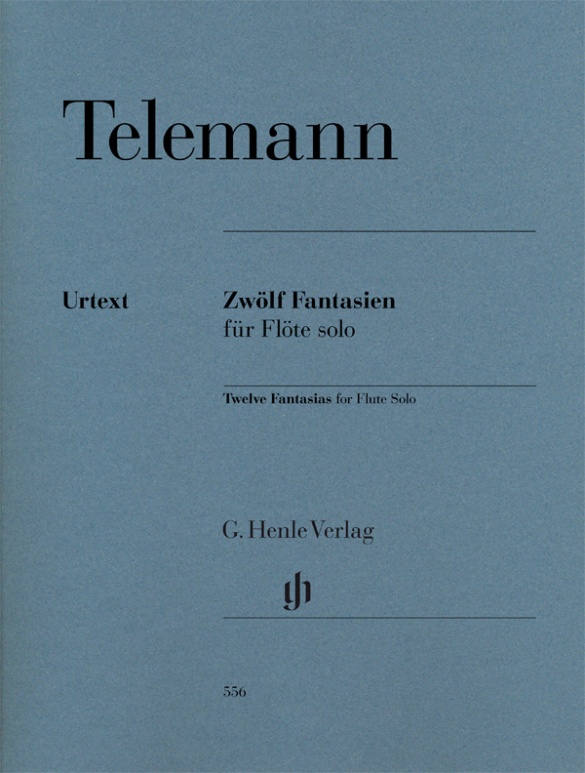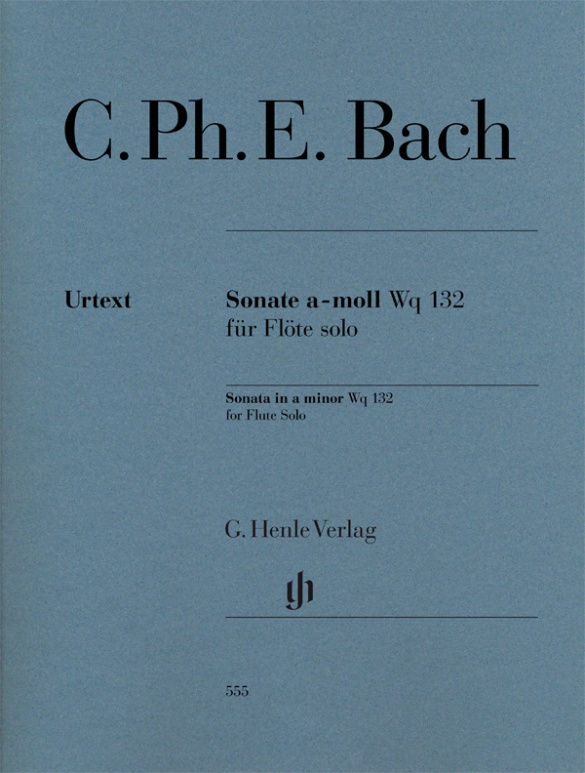

Carl Philipp Emanuel Bach
Flute Sonata a minor Wq 132
For whom did Carl Philipp Emanuel Bach write his solo sonata? The addressee of the sonata is frequently thought to be the King Friedrich II of Prussia. Yet Bach would not have made music that was exclusively intended for the king available for all. And the Sonata for flute solo was published twice in the 1760s.
The riddle is not to be solved. Today the three-movement work is one of the solo pieces that all flautists have to have played once – it is truly regal music. The flautist Karl Kaiser has contributed informed comments on performance practice.
mws-henle.cms.title-works.headline
mws-henle.cms-product-detail.composer-headline
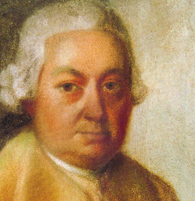
Carl Philipp Emanuel Bach
He is primarily famous for his music for keyboard instruments and is regarded as the most important composer of sonatas (approximately 150) in the mid eighteenth century. His self-image as a composer is in line with the aesthetic of the genius. His musical idiom is characterized by a “speaking” disposition and by moments of surprise.
| 1714 | Born in Weimar on March 8; second surviving son from Johann Sebastian Bach’s first marriage. Musical education from his father; attends the Lutheran Latin school in Köthen, the St. Thomas School in Leipzig. Participates in the Collegium Musicum. |
| 1731 | Law studies in Leipzig. |
| 1734–38 | Continuation of law studies in Frankfurt an der Oder. Occasional compositions. |
| 1740–68 | Harpsichordist in Berlin at the court of Frederick II. |
| 1741 | Symphony in G major (Wq 173), his first. |
| 1742–44 | “Prussian” and “Württemberg” Sonatas. |
| 1753 | Treatise: “Essay on the True Art of Playing Keyboard Instruments” (First part; second part in 1762) |
| 1758 | Publication of “Professor Gellert’s Sacred Odes and Songs” (Second collection in 1764) |
| 1760 | Publication of “Six Sonatas for Keyboard with Varied Reprises.” |
| 1768 | He succeeds Telemann as music director and cantor at the Johanneum Latin school in Hamburg. Composes liturgical music (cantatas) as well as instrumental works (symphonies, concerti, chamber music), large vocal works (Passion settings and oratorios), and occasional compositions for the city’s musical establishment. Organizes “Bach’s Private Concerts.” |
| 1775 | Oratorio “Die Israeliten in der Wüste” (“The Israelites in the Desert”). |
| 1779–87 | Publication of “Clavier Sonatas and Free Fantasies along with Divers Rondos […] for Experts and Amateurs.” |
| 1788 | Dies in Hamburg on December 14. |
Product Safety Informations (GPSR)

G. Henle Verlag
Here you can find the information about the manufacturer of the product.G. Henle Verlag e.K.
Forstenrieder Allee 122
81476 München
Germany
info@henle.de
www.henle.com
Essential and standard repertoire to be carefully studied, this is a rare solo sonata in three movements from the empfindsam style of the 18th century, a gem to be ultimately played by every flutist.
Flute Talk, 2014Die Neuausgabe des Henle Verlags glänzt mit Klappseite (...) sowie aufführungspraktischen Anmerkungen von Karl Kaiser. Selbstverständlich ergänzen Hinweise zur Quellenlage und Edition die wissenschaftlich-praktische Edition, die ein weiterer Edelstein unter den Urtext Editionen für Flöte des Henle Verlages ist.
Flöte aktuell, 2014La reproduction intégrale en fac-similé de l'édition originale de Berlin, parue en 1763, rehausse l'intérêt d'une édition irréprochable.
Tempo flute, 2014推荐
autogenerated_cross_selling
本书目其他版本
本书目其他版本


